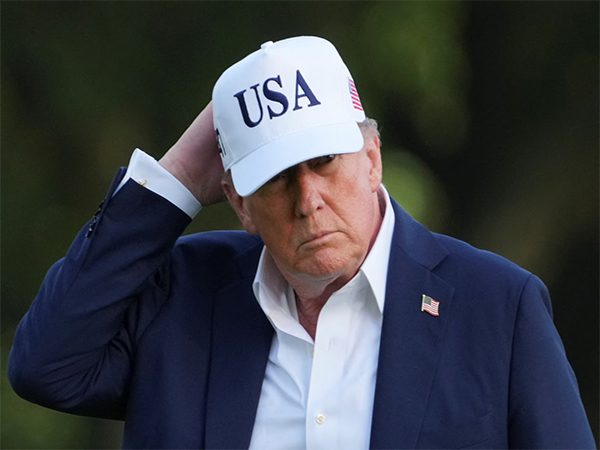
Rising Tensions and International Pressure
As the conflict in Ukraine continues, international pressure is mounting on countries that maintain economic ties with Russia. U.S. President Donald Trump has called for the imposition of 100 percent "secondary tariffs" on Moscow if Russian President Vladimir Putin does not end the conflict within 50 days. This move has sparked discussions among U.S. lawmakers, particularly Senators Lindsey Graham and Richard Blumenthal, who have warned several nations, including India, about potential economic sanctions if they continue to do business with Russia.
Bipartisan Efforts to Address the Crisis
Senator Lindsey Graham, a Republican from South Carolina, and Senator Richard Blumenthal, a Democrat, have introduced a bipartisan bill in Congress aimed at implementing sanctions on Russia. The legislation, known as the "Sanctioning Russia Act of 2025," seeks to impose even tougher penalties to deter countries like India, China, and Brazil from supporting Putin's war machine. The bill proposes tariffs as high as 500 percent on any country that continues to engage in trade with Russia.
Blumenthal emphasized the importance of this legislation, stating that it sends a powerful message of support to Ukraine and highlights the urgency of addressing the crisis. He praised Trump’s decision to announce secondary tariffs as a "breakthrough step" and called for continued efforts to push the bill forward.
The Role of Secondary Tariffs
According to a joint statement by Graham and Blumenthal, countries such as China, India, and Brazil are being targeted because they are seen as propping up Putin's war effort by purchasing cheap Russian oil and gas. The statement argued that these actions are fueling the conflict and that imposing tariffs could be a strong deterrent.
Trump announced the idea of secondary tariffs during a meeting with NATO General Secretary Mark Rutte. He expressed his dissatisfaction with Russia and outlined the consequences of not reaching a peace agreement within 50 days. "We're going to be doing very severe tariffs if we don't have a deal in 50 days. Tariffs at about 100 percent," he said, referring to the measures as "secondary tariffs."
Impact on Global Trade and Diplomacy
The proposed tariffs have raised concerns among countries that rely on Russian energy exports. India, for example, has been in communication with Senator Graham regarding the bill, as its foreign affairs minister, S Jaishankar, acknowledged. He stated that the Indian embassy and ambassador have been in touch with Graham and that India will address the issue if it becomes relevant.
Jaishankar also mentioned that India's concerns and interests regarding energy and security have been made clear to Graham. However, he noted that the situation would need to be addressed if it escalates further.
A Call for Diplomatic Engagement
Graham and Blumenthal have stressed that the ultimate goal of the tariffs is not just to punish but to encourage diplomatic engagement. They believe that the threat of economic consequences could compel Putin to come to the negotiating table and seek a peaceful resolution.
"The goal is not more tariffs and sanctions - the goal is to entice Putin to come to the peace table," their statement read. They also reiterated their commitment to working with the White House on the bipartisan Russia sanctions legislation, which aims to implement up to 500 percent tariffs on countries that buy Russian oil and gas without helping Ukraine.
Conclusion
As tensions continue to rise, the international community is closely watching how these developments unfold. The proposed tariffs and sanctions represent a significant shift in strategy, combining economic pressure with diplomatic efforts to bring an end to the conflict in Ukraine. With the involvement of major global players like India, China, and Brazil, the path to a resolution remains complex and challenging.
